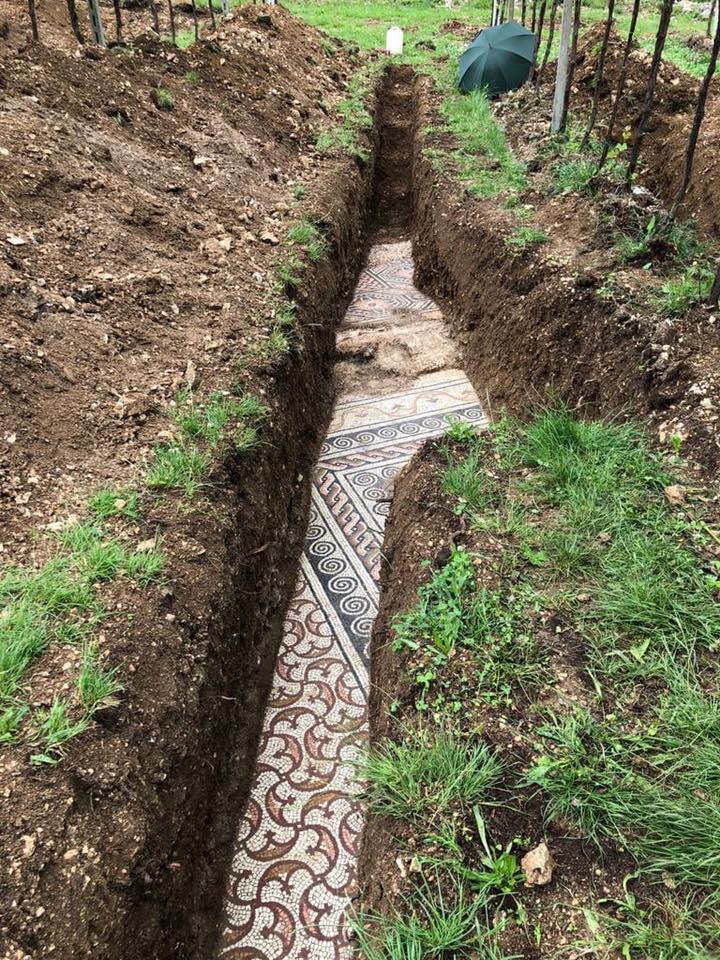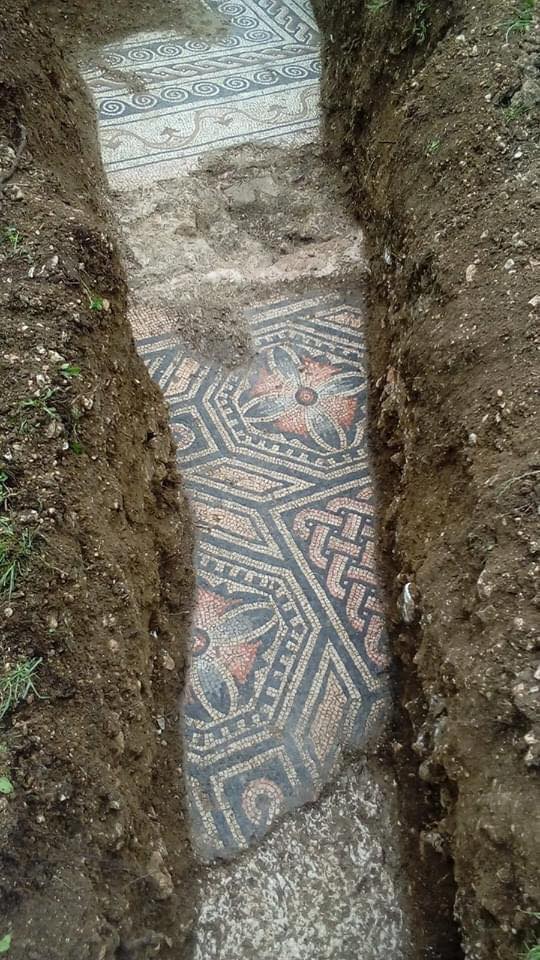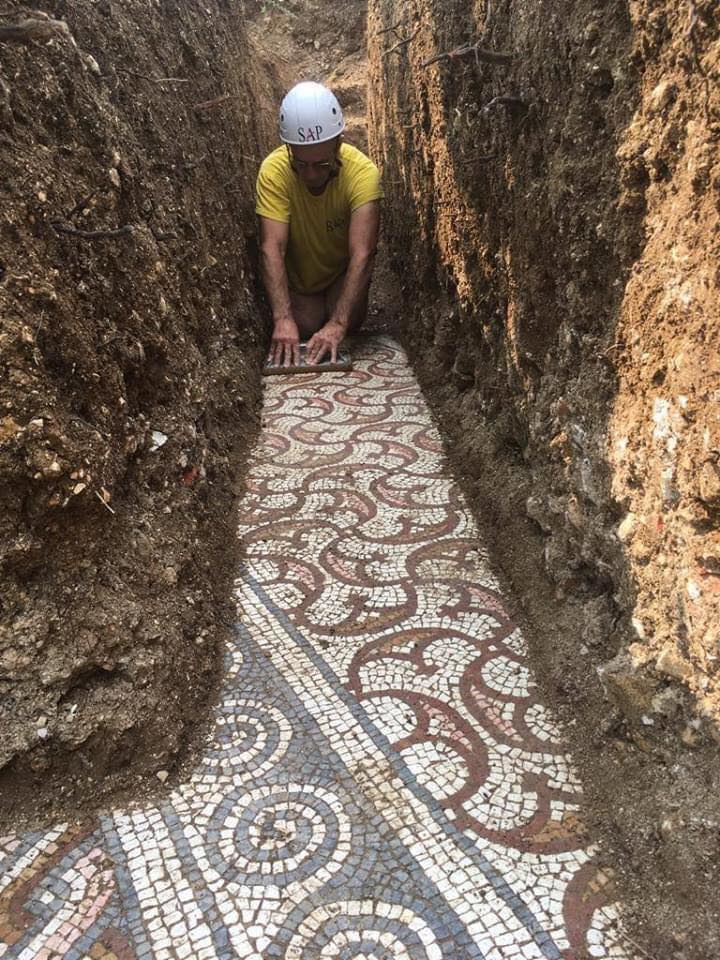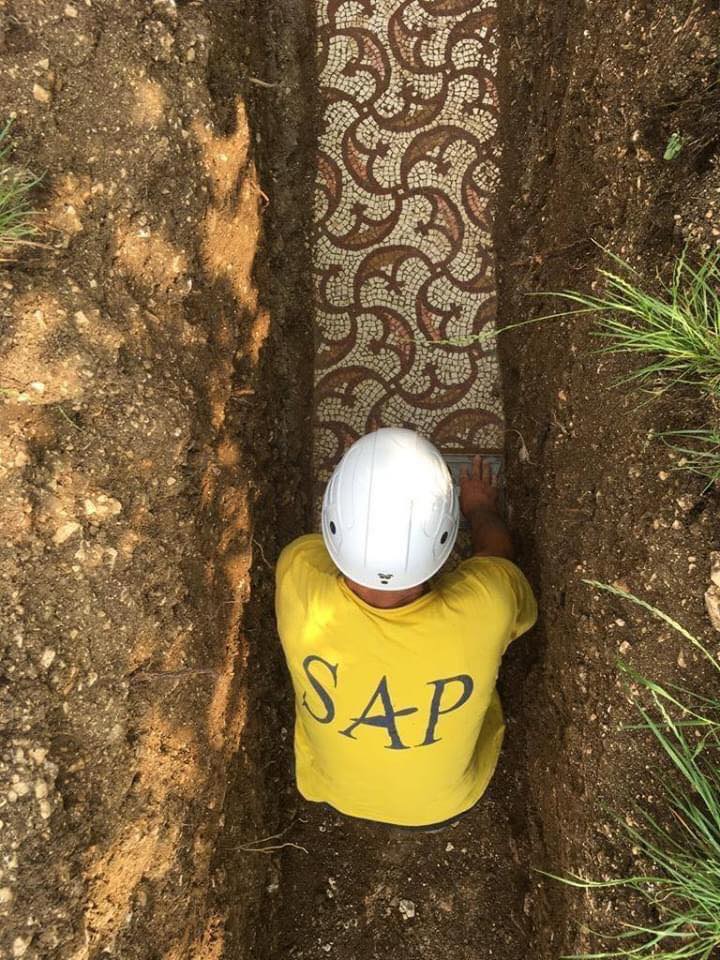
One often hears about renovation projects that tear up linoleum, shag carpet, or some equally unappealing flooring to discover a pristine (and now much more attractive) layer of hardwood or tile beneath. Any building of sufficient age becomes a palimpsest, a collection of era upon era of trends in architecture and design: a look under a floor or behind a wall can potentially become a trip back in time. The same holds for the land itself, at least in the parts of the world where civilization arrived first. "In former Mesopotamia there are hills in areas that should be entirely flat," writes Myko Clelland, better known as the Dapper Historian, on Twitter. "They're actually remains of entire towns, where residents built layer after layer until the whole thing became metres tall."

Or take Negrar di Valpolicella, home of the eponymous wine varietal, one of whose vineyards has turned out to conceal an ancient Roman villa. The discovery at hand is an elaborate mosaic floor which The History Blog reports as "dating to around the 3rd century A.D." So far, the dig under the Benedetti La Villa has revealed "long uninterrupted stretches of mosaic pavements with polychrome patterns of geometric shapes, guilloche, wave bands, floral vaults and the semi-circular pelta."
Though the floor's brilliance may have been unexpected, its presence wasn't: that a Roman villa had once stood on the grounds "was known since the 19th century. Indeed, the name of the winery is taken from the name of the contrada (meaning neighborhood or district), evidence of culturally transmitted knowledge of a grand villa there."

Announced just last week by Negrar di Valipocella, the discovery of this mosaic floor comes a result of the most recent of a series of archaeological digs that began in 1922. "Numerous attempts were made in subsequent decades to find the villa," says The History Blog, "and another smaller mosaic was discovered in 1975 and covered back up with soil for its preservation." Though interrupted by budgetary limitations, the work cycle of the still-operational vineyard, and this year's coronavirus pandemic, the project has nevertheless managed to turn up a strong contender for the archaeological find of the year. With luck it will turn up much more of this 1,800-year-old domus, giving us all a chance to see what other unexpectedly tasteful design choices the ancient Romans made. The images in this post come via Myko Clelland, Dapper Historian on Twitter.

Related Content:
Roman Architecture: A Free Course from Yale
Take Animated Virtual Reality Tours of Ancient Rome at Its Architectural Peak (Circa 320 AD)
See the Expansive Ruins of Pompeii Like You’ve Never Seen Them Before: Through the Eyes of a Drone
Based in Seoul, Colin Marshall writes and broadcasts on cities, language, and culture. His projects include the book The Stateless City: a Walk through 21st-Century Los Angeles and the video series The City in Cinema. Follow him on Twitter at @colinmarshall, on Facebook, or on Instagram
Magnificent Ancient Roman Mosaic Floor Unearthed in Verona, Italy is a post from: Open Culture. Follow us on Facebook, Twitter, and Google Plus, or get our Daily Email. And don't miss our big collections of Free Online Courses, Free Online Movies, Free eBooks, Free Audio Books, Free Foreign Language Lessons, and MOOCs.
from Open Culture https://ift.tt/3dtbW8c
via Ilumina
Comments
Post a Comment